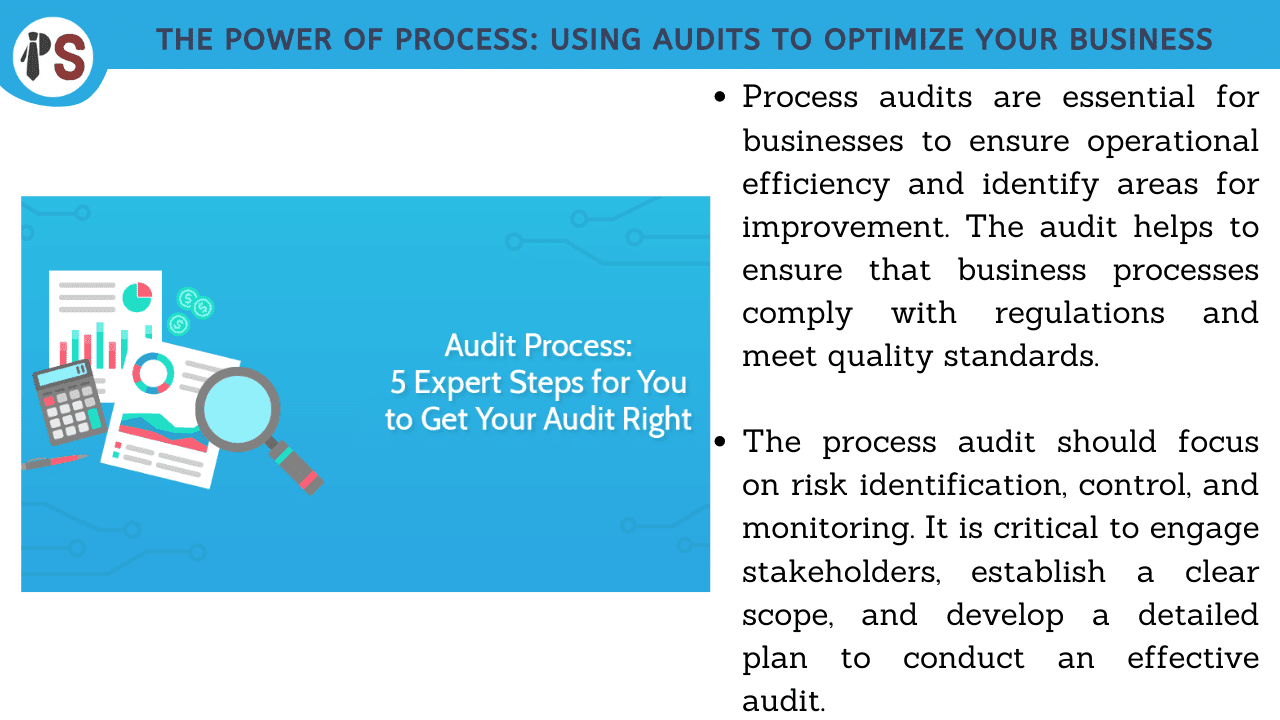
Process audits are an essential tool for ensuring that a company's processes are working efficiently and effectively. By conducting process audits, companies can identify areas of improvement and optimize their processes to improve their bottom line. In this blog post, we will discuss the importance of process audits and provide best practices for conducting them.
Process audits help companies to identify inefficiencies and bottlenecks in their processes. By identifying these areas, companies can make necessary changes to improve their productivity, reduce costs, and increase customer satisfaction. Process audits also ensure that the company is following its established procedures and policies.
In addition, process audits help companies to identify potential risks and areas where compliance may be an issue. By identifying these issues early on, companies can take corrective action before the issue becomes more significant.
Define the Scope: It is essential to define the scope of the audit and identify the specific processes to be audited. This will ensure that the audit is focused and relevant.
Establish Criteria: Establish criteria against which the processes will be evaluated. This should include objectives, performance measures, and expectations.
Identify Risks: Identify the potential risks and issues associated with each process. This includes potential failure points, non-compliance issues, and other issues that may impact process efficiency.
Collect Data: Collect data on the processes being audited. This includes data on performance, quality, and compliance.
Analyze Data: Analyze the data collected to identify any trends, patterns, or anomalies. This will help to identify areas where improvements can be made.
Identify Opportunities for Improvement: Identify opportunities for improvement based on the data analysis. This includes identifying areas where processes can be optimized, risks can be mitigated, and compliance can be improved.
Develop Recommendations: Develop recommendations for improvement based on the opportunities identified. This should include specific actions to be taken, timelines, and responsibilities.
Implement Recommendations: Implement the recommendations developed. This includes communicating the recommendations to the relevant stakeholders and ensuring that they are followed.
Monitor Progress: Monitor progress towards implementing the recommendations and track the results of the process audit.
Process audits are essential for ensuring that a company's processes are efficient, effective, and compliant. By conducting process audits, companies can identify areas of improvement and take necessary action to optimize their processes. Following the best practices outlined above will help companies to conduct effective process audits and achieve their business objectives
At Professional Saathi, we offer a range of business consultancy services that help businesses improve their performance, achieve growth, and overcome challenges.
Copyright 2026 © Created By KTPG PROFESSIONAL SAATHI CORPORATE CONSULTANT PRIVATE LIMITED, All Rights Reserved.
Leave Your Comment